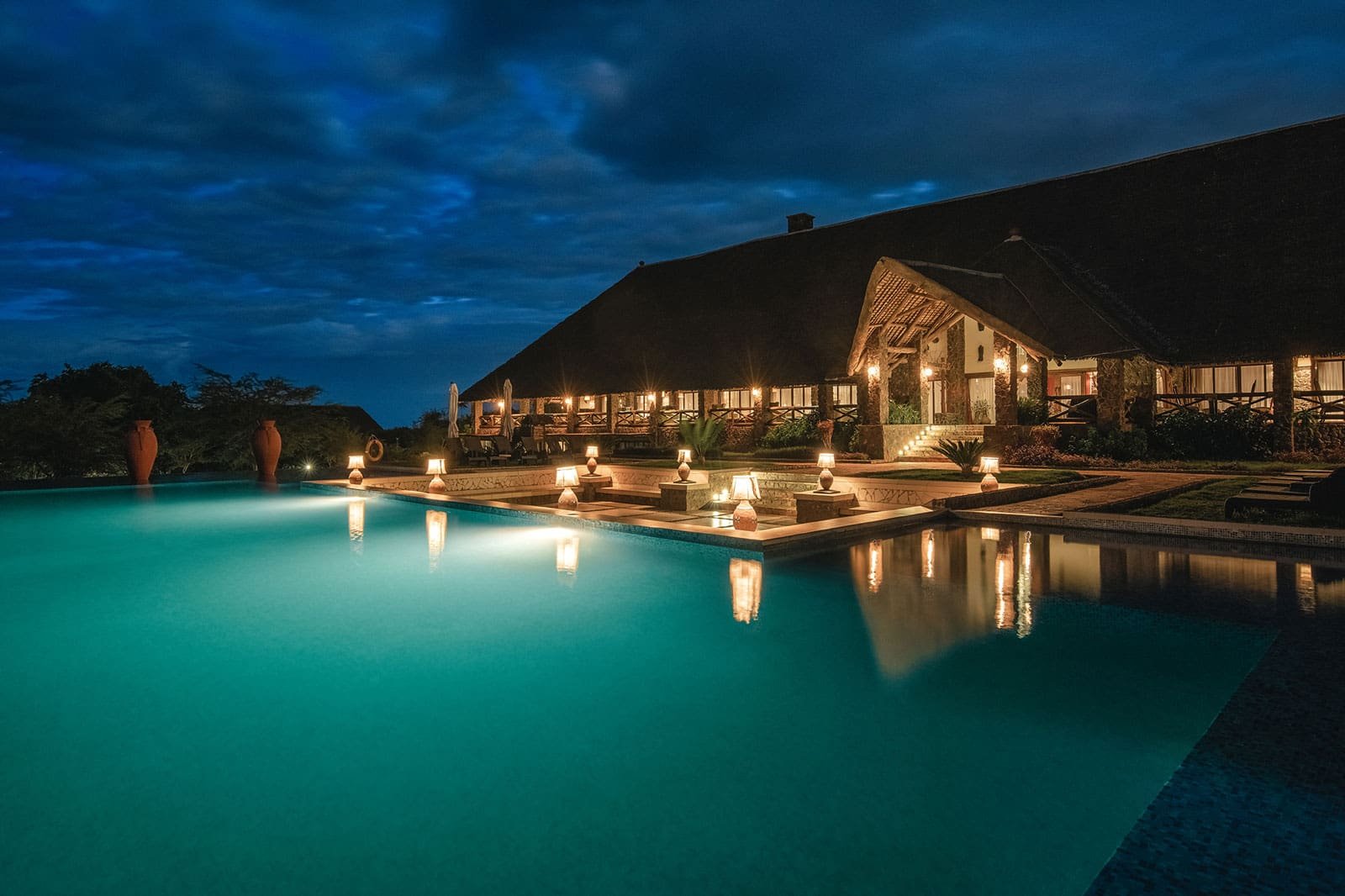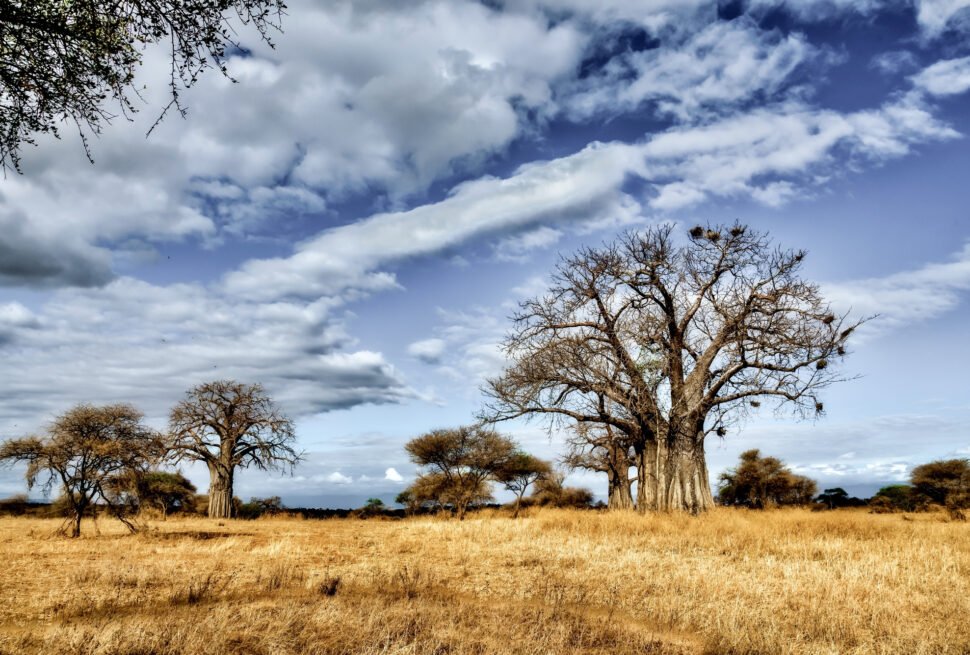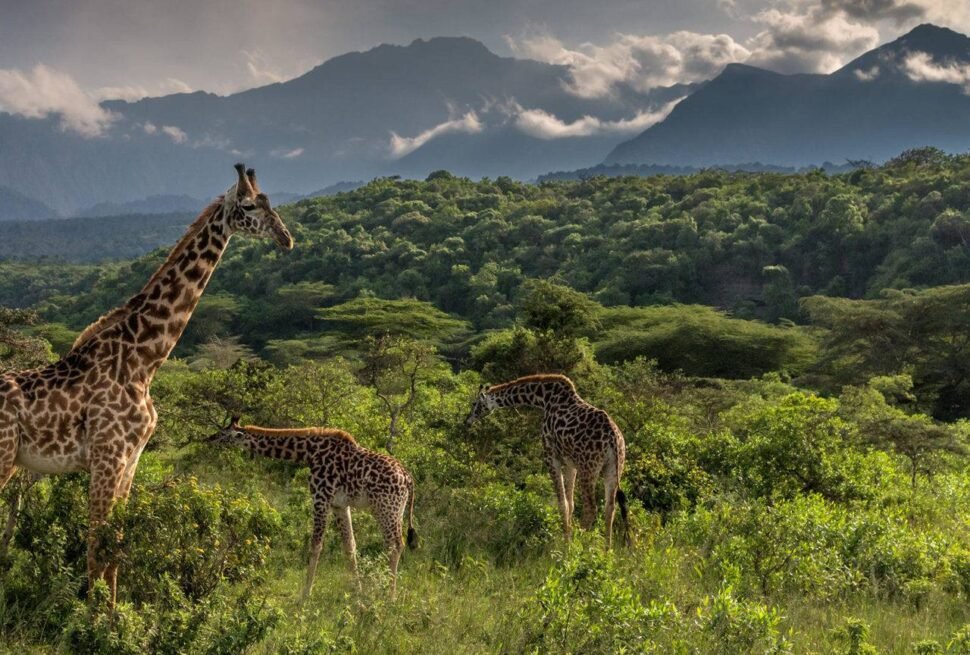Table of Contents
Introduction
Picture yourself sipping coffee at dawn as elephants amble past your tent, or sharing stories around a crackling campfire under a sky dusted with stars. A safari is a dream for many, but when it comes to choosing between budget and luxury, you might wonder: Is the cost really worth it?
The answer is a resounding YES. But not just for the plush lodges or gourmet meals. Luxury safaris offer something deeper: exclusive wildlife encounters, meaningful conservation impact, and moments that linger in your heart long after you’ve returned home. Let’s uncover five unexpected reasons why a luxury safari isn’t just a trip—it’s a life-changing adventure.
1. Exclusive Access to Remote Wildlife Areas
One of the best-kept secrets of luxury safari tours is their ability to secure exclusive or near-exclusive access to some of Africa’s most remote and wildlife-rich regions. While popular parks such as the Serengeti and Ngorongoro Crater are open to all kinds of tours, many luxury operators also work with private concessions, reserves, or conservancies. These private areas either adjoin national parks or are located in lesser-known corners of Africa. The upshot? You often enjoy wildlife sightings with fewer vehicles around, more flexible rules (including off-road driving in some locations), and a sense of genuine seclusion that enhances the adventure.
1.1 Private Conservancies and Off-Road Adventures
In many public parks, vehicles must stick to designated roads, which can limit your ability to follow fleeting wildlife sightings. By contrast, private conservancies often allow limited off-road driving (within responsible limits) to track a cheetah or leopard more closely. This not only yields better photo opportunities but also heightens the thrill of following animals in real-time. The presence of fewer visitors means you might share a lion pride or wild dog pack with only one other vehicle—or enjoy it entirely alone.
1.2 Unspoiled Landscapes and Rare Species
Some high-end safaris target regions that standard tours seldom visit, ranging from the wetlands of the Okavango Delta to remote corners of Tanzania’s Ruaha National Park or Botswana’s Selinda Reserve. These places may harbor rare or endangered species, such as wild dogs, black rhinos, or the elusive pangolin. The relative scarcity of tourists and well-regulated visitation keep these ecosystems healthier and less pressured, improving your odds of witnessing natural wildlife behavior, not animals habituated to large crowds.
1.3 Tailored Activities Beyond the Standard
Because of special permissions or fewer restrictions, luxury safari operators in these private areas can offer a broader range of activities. These may include night drives, walking safaris, or even multi-day walking treks guided by expert trackers. Observing nocturnal species like aardvarks, bush babies, or hunting leopards under the moonlight is an experience seldom possible in busy national parks. Some high-end lodges also host educational programs—such as field ecology sessions or camera-trap demonstrations—that give a richer perspective on conservation.
The combination of exclusive territory, fewer crowds, and unique activities is the backbone of a luxury safari’s worth. You are not just paying for comfort; you are investing in a level of immersion that ordinary group tours cannot provide.
2. Personalized Service and Expert Guidance
Another less obvious but key advantage to a luxury safari is the high guide-to-guest ratio and finely tuned personalized service. This difference goes far beyond having plush towels in your room or a wider variety of fine wines. It influences every aspect of your trip, from the daily itinerary to how deeply you get to know the wildlife and environment.
2.1 High Guide-to-Guest Ratio
In a typical budget or mid-range safari, you might share a vehicle with six or more travelers, and the guide must juggle the questions, interests, and needs of everyone onboard. By contrast, many luxury lodges and tour operators limit vehicles to 2–4 guests (or provide the option to book a private vehicle entirely). Such small group sizes ensure you receive far more one-on-one time with your guide, enabling them to tailor game drives to your interests—whether you are a keen birder, a photographer seeking dramatic light, or a family wanting to spot as many cats as possible.
2.2 Deep Expertise of Guides and Trackers
Luxury operators often recruit guides who have spent years—if not decades—honing their craft. These guides are not just drivers; they are skilled naturalists, photographers, sometimes even researchers. Some camps pair guides with specialized trackers, local experts who read the bush like an open book, interpreting footprints, dung, and subtle alarm calls that reveal where animals are hiding. Learning from these seasoned professionals elevates your experience from simple wildlife viewing to active engagement, as they decode behaviors, narrate survival strategies, and explain ecosystem dynamics in real-time.
2.3 Personalized Itineraries and Flexibility
Not all travelers want the same pace or style. Luxury safari itineraries can be custom-fit: early morning drives for enthusiasts keen on capturing sunrise shots, midday relaxation time for those who want to enjoy spa treatments or a private pool, late-afternoon walks for explorers who prefer to observe smaller fauna up close. Should an unexpected wildlife spectacle occur—like a pride of lions on a fresh kill—guides have the freedom to extend the drive or alter the day’s schedule, ensuring you do not miss these magical moments.
With personalized service, every aspect of your trip—from meal preferences and dietary needs to photography advice—is handled with expertise, leaving you free to savor the thrill of Africa’s wilderness without logistical worries. This level of attention is a significant reason why the value of a luxury safari goes far beyond the sum of its amenities.
3. Culinary Excellence, High-End Amenities, and Authentic Immersion
When it comes to luxury safari lodges, the phrase “roughing it” simply does not apply. Though you might be in the midst of remote bushland, you can still wake up to hot coffee or tea brought to your tent, enjoy multi-course gourmet meals under starry skies, and retire to a room or suite that rivals high-end boutique hotels. This elevated comfort might surprise some who assume a safari demands sacrificing certain creature comforts.
3.1 Gourmet Food and Bush Dining Experiences
Many luxury camps hire professional chefs trained in international and local cuisines, often incorporating fresh, locally sourced ingredients. You may dine on:
- Fresh Produce and Fine Cuts of Meat: Even in remote locations, camps arrange regular supply runs or have organic gardens on-site.
- Themed Dinners and Bush Banquets: A highlight of many high-end safaris is a bush dinner, where a fully set table awaits you in a clearing, illuminated by lanterns or a bonfire, with wildlife calls echoing in the background.
- Tailored Menus: If you have special dietary needs (vegan, gluten-free, etc.), luxury lodges not only accommodate but often go the extra mile to craft inventive, delicious dishes.
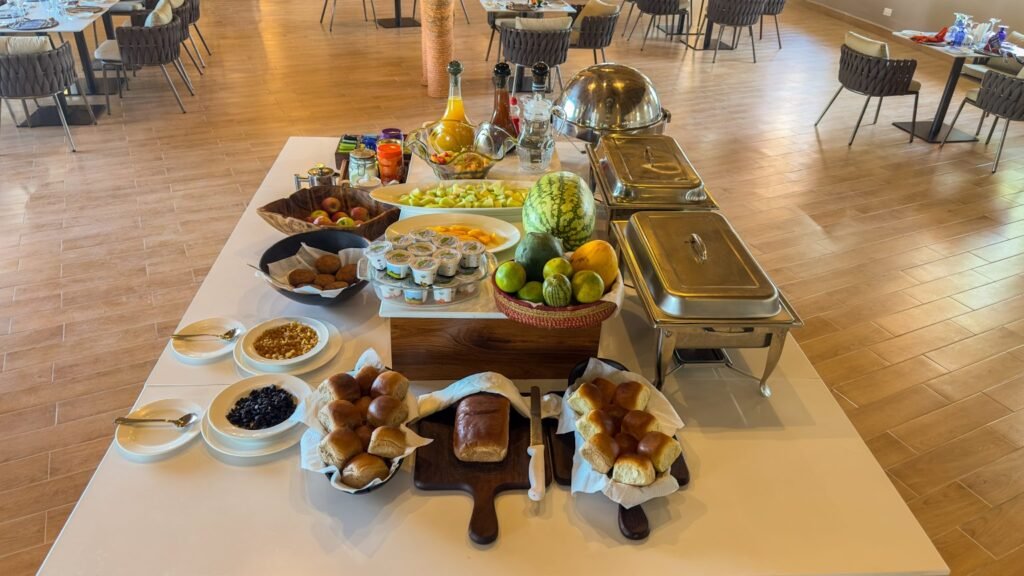
3.2 Upscale Lodging and Amenities
Imagine waking in a plush king-size bed to see giraffes strolling by in the early dawn light, or stepping into an en-suite bathroom with both an indoor and outdoor shower. Some camps even offer private plunge pools, allowing you to cool off during the midday heat while overlooking a waterhole frequented by elephants. Contrasts like these—modern comfort in a wilderness setting—typify the allure of high-end safaris.
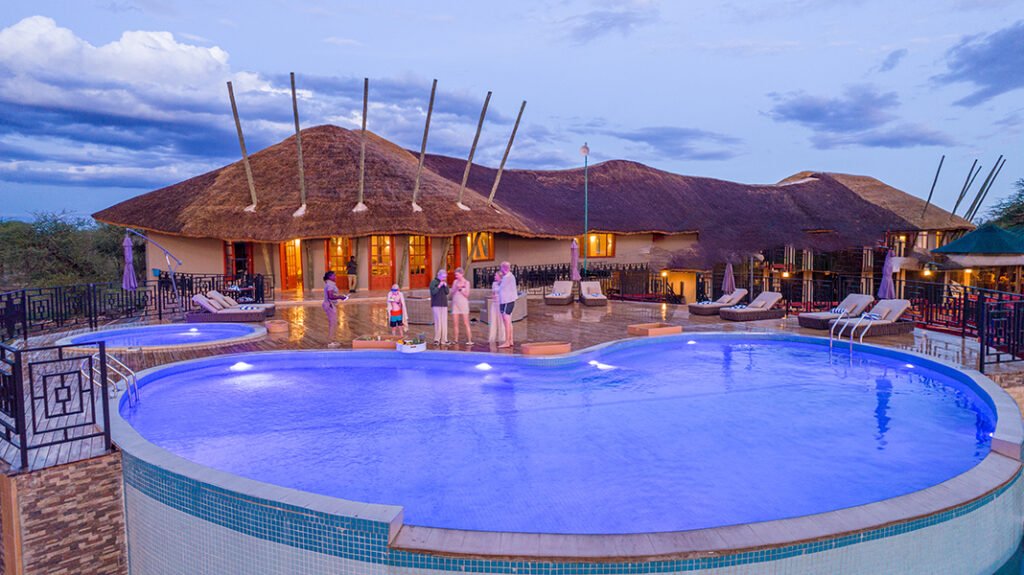
- Tented Suites vs. Brick-and-Mortar Lodges: Some travelers prefer the romance of a canvas tent connected by wooden walkways, while others opt for a luxury lodge with solid walls. Either way, the emphasis is on blending with the environment while maintaining top-tier comfort.
- Extra Touches: Hot-water bottles for chilly nights, plush robes, in-room Wi-Fi (increasingly common), and stylish décor that reflects local art traditions.
3.3 Blending Comfort with Authenticity
One might fear losing the authentic safari spirit with all this luxury. Yet top-end operators often strike a balance: while you have modern conveniences, the camp architecture and activities pay homage to local cultures and the natural setting. Designs often use sustainable materials, incorporate local artistry, and provide vantage points for wildlife viewing. From private balconies or decks, you can watch animals roam across the plains or come for a drink at the lodge’s nearby waterhole.
The comfort and amenities do not dilute the wildness; instead, they allow you to appreciate it in a more relaxed, immersive way. After a day tracking cheetahs in the bush, returning to a restful lounge area with panoramic views, a refreshing drink, and a hearty meal can reinforce the day’s magic rather than overshadow it.
4. Impact on Conservation and Community Development
One of the most overlooked reasons luxury safaris are worth the cost is the significant portion of your fees that often supports wildlife conservation efforts and local community development. That might be counterintuitive: how could an expensive tour be more beneficial than a budget one? However, many high-end safari operations place ethical and sustainable practices at the core of their business model, funneling revenue into crucial conservation projects, anti-poaching initiatives, and community partnerships.
4.1 Conservation-Focused Lodges and Reserves
A defining feature of top luxury safari brands is their commitment to conservation finance. Many own or lease private conservancies, investing in:
- Anti-Poaching Patrols: Funding teams of rangers, sometimes equipped with modern technology like drones or camera traps, to protect threatened species such as rhinos or elephants.
- Habitat Restoration: Reforestation, removal of invasive plant species, rewilding areas that once faced overgrazing or mining.
- Scientific Research: Hosting field researchers and ecologists who study animal behavior, migration, or population health.
When you pay a premium for a stay in these areas, you contribute to sustaining their projects. This is not typically the case for cheaper tours that have thinner profit margins, less engaged owners, or no direct involvement in land management.
4.2 Community Uplift and Local Employment
Rural African communities around national parks and reserves often have complex relationships with wildlife, especially when elephants trample crops or lions threaten livestock. Luxury operators frequently collaborate with local villagers to create win-win scenarios:
- Revenue Sharing: Some private conservancies lease land from local tribes (such as the Maasai in Kenya or various communities in Botswana), ensuring they receive regular income. This arrangement incentivizes wildlife protection rather than poaching or agricultural expansion into wildlife corridors.
- Employment and Training: Luxury lodges hire locally for roles like guides, housekeepers, chefs, and managers. Many also fund scholarships for promising local youth or sponsor health clinics, schools, or water projects.
- Cultural Inclusion: Rather than “showcasing” a tribal dance as a tourist curiosity, many of these lodges build authentic cultural exchanges. Visitors learn about local customs, while community members can proudly share their heritage.
4.3 Ethical Tourism with Tangible Results
In the modern age, travelers increasingly look for ethical, low-impact tourism that gives back. A pricey but responsibly run safari can have a transformative effect on wildlife preservation and community well-being. By choosing these high-end tours—often run by eco-certified brands—you become part of a positive feedback loop: your visit supports local stakeholders, which in turn fosters more robust conservation and cultural appreciation, ensuring future generations can enjoy the same thriving ecosystems.
This impact goes beyond feel-good marketing. In many African destinations, lodge owners and community leaders can point to tangible metrics: an increase in rhino populations, reduced human-wildlife conflicts, higher rates of children completing school, and stable local economies. Hence, your investment in a luxury safari does more than bring personal satisfaction; it actively sustains the wild places and people who call them home.
5. Intangible Benefits and Lifelong Memories
While the previous sections touched on exclusive wildlife access, personalized service, luxurious comfort, and ethical contributions, there is one last dimension that is difficult to quantify but supremely powerful: the intangible, transformative quality of a top-tier safari. Human experiences often transcend spreadsheets and cost breakdowns. You might remember them for decades after the trip is over, and in ways that cheaper or more generic travel rarely matches.
5.1 Connection to Nature and Inner Reflection
Few experiences parallel the moment you sit quietly in a safari vehicle, listening to a lion’s rumble at dusk, or watch a herd of elephants guide their young across a moonlit clearing. The immersive tranquility of the bush can foster an internal shift, encouraging mindfulness, gratitude, and a deeper respect for nature’s cycles. Luxury safaris—because they often base guests in more remote, uncrowded areas—enhance this introspection. You are not fighting for vantage points or rushing back to stick to a rigid schedule. Instead, you take in the rhythms of Africa’s wilderness as it unfolds around you.
5.2 Shared Experiences and Personal Growth
Safaris are best savored in small groups, whether that is with family, close friends, or a partner. High-end tours allow you to focus on quality time, forging deeper bonds. Children, in particular, can be profoundly influenced by seeing wildlife in its natural habitat, learning conservation principles first-hand, and interacting with local communities. Even couples find a different sort of romance under African skies—bush dinners, private star-gazing sessions, or guided walks that spark both adrenaline and wonder.
5.3 Unscripted Encounters and Serendipity
In the luxury safari realm, the staff and guides often have the flexibility to capitalize on unexpected moments. Maybe a mother cheetah appears with cubs near your camp, or an impromptu opportunity arises to watch rhinos being microchipped by a conservation team. Because you are not bound by large group logistics, you can adapt and chase these once-in-a-lifetime experiences. Such spontaneous events often become the highlight of any trip—stories you recount fondly for years, if not decades.
5.4 A Renewed Perspective on the Planet
Returning home from a well-orchestrated luxury safari can change how you view wildlife, conservation, and even daily life. You might come away determined to reduce your carbon footprint, support specific conservation programs, or share your safari stories with friends to raise awareness. This sense of personal growth and stewardship is not an advertised line item in your trip invoice, but it becomes part of what makes the expense worthwhile.
Memories, after all, can be priceless. The intangible value embedded in the depth, exclusivity, and immersive nature of a luxury safari often justifies the higher price for those who seek meaningful experiences rather than cookie-cutter tours.
Conclusion: Why Paying More for a Luxury Safari Delivers Lasting Value
Luxury safaris do not merely offer a more comfortable bed or fancier meals. They grant access to pristine wildlife areas that fewer visitors tread, provide the guidance of experts deeply committed to both your experience and ecosystem health, and weave a tapestry of cultural and conservation-oriented benefits that ripple through local communities. From the vantage point of a private balcony overlooking a hippo-filled lagoon to the hush of a midnight lion roar echoing across the plains, these tours deliver unrivaled intimacy with nature.
Moreover, by investing in a high-end safari:
- You gain access to remote, exclusive wildlife regions, far from crowds and standard travel routes.
- Your trip is guided by top-tier professionals, ensuring a personalized and insightful adventure.
- You enjoy curated comforts and top-notch amenities, enhancing immersion without sacrificing authenticity.
- Your presence supports local communities and conservation efforts at a scale rarely matched by budget tours.
- You forge intangible memories that can shape your worldview and stay with you long after you return home.
In this equation, the “extras” provided by a luxury safari are not superficial perks but rather integral parts of an eco-friendly, culturally mindful, and deeply fulfilling travel experience. By the end of such a journey, many travelers find that the intangible rewards—the sense of wonder, perspective, and positive impact—make the higher cost not just justified, but one of the best investments they have made.

